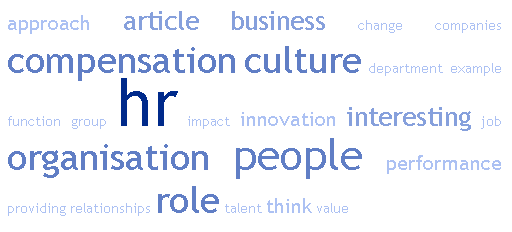There's a now a video demonstration of 4G on the Management Due Diligence page. You can see the video below, or on the Management Due Diligence page.
Video – Management Due Diligence
Ready, Aim, Fire… Business isn’t War…
Given the time and energy invested in activities such as engagement, talent development, finding 'untapped potential' and purpose, it's quite surprising to see elements of business language still being dominated by military metaphors from the last century.
Take, for example, 'Chief' (Executive or Finance) 'Officer', 'Execution' (of the business plan) and the use of 'Targets' (to aim for). And this is before we start talking about 'Annihilating' the competition.
I'm not sure if the contrast between implicit command and control type language on the one hand and attempts to motivate and engage people's passion on the other is particularly successful. Likewise, I don't know if other's are aware of this contrast, or if its just me. (Knowing me, I'm sure its just me...).
Either way, I don't think it helps either point of view progress much at all, whether you subscribe to either of theory X or theory Y.
Is there really such a thing called talent?
A very thought provoking piece on talent from Magnus Holm, drilling into the details and questioning some of the assumptions.
In order to become great or excellent, you must keep practicing. Not mindless practice of course, but deliberate practice as Ericsson has described. Depending on the subject, the innate abilities or the physical attributes may help, but is not essential for reaching an expert performance. In many cases, having a talent makes no significant differences on the outcome, which therefore leads to the conclusion that, very often, “there is no talent”.
If talent doesn’t matter, what do you need then? Passion, passion and passion. By following your passion you will not only get better at things, but your life situation will also improve since you’re doing what you really want to do.
Might it be that passion is more valuable than talent? Are we inching our way past 20th century militaristic models of work or will there be a new 'war for passion'?
By giving up the quest for ROI, can HR make itself indispensible?
For too long HR has laboured under the belief that if it can somehow conjour up tangible performance figures, it’s future as a strategic influence on the organisation will be guaranteed.
A recent HR Magazine article by Chris Roebuck highlights the ongoing search for hard numbers to back up the continuing existence of the HR function:
“How many HR functions have presented a clear case to their FD on the financial value they are likely to be adding? How many have identified specific initiatives that have delivered specific value to improve service to end users or customers?”
In seeking to show value, the result is that HR practitioners have been taking a macro view of the organisation, striving to provide a similar service to the organisation as the finance department in terms of crunching numbers and applying a uniform approach to their areas of responsibility, hiring, firing, talent etc.
Without doubt, analytics are here to stay and are likely to play an increasingly important role in organisational planning and development. For example, Cathy Missildine-Martin has a blog post about a recent HR Magazine article by Dave Zielinksi that looks at the composition of Google’s HR team:
“ 1/3 of the HR team have HR backgrounds and bring expertise in employee relations along with other specialist expertise like benefits and compensation. 1/3 of the HR team has little or no HR background and come from strategic consulting firms or internally from Google’s sales and engineering departments. These individuals are embedded in the business as consultants. 1/3 of the HR team are the quant jocks. They are statisticians, PhD’s in finance and organizational psychology. Their job is organizational analytics especially the predictive kind.”
There are a couple of interesting things, firstly that 1/3 of the HR team has little or no HR background. This emphasises the fundamental need for a commercial understanding of the business. Secondly, the analytics are supplied by specialists in esoteric and complex areas such as cognitive heuristics. I was particularly interested in the emphasis on predictive analytics. This flies in the face of the traditional dashboard type information gathered and processed by the HR department. Unfortunately most HR departments don’t have the budget, infrastructure or data required to appoint such specialists.
A further example of the role analytics are here to stay and that advances in technology and creative thinking are bringing new insight into organisational performance are highlighted in a blog post by Gautam Ghosh:
“Many companies favor job candidates with stellar academic records from prestigious schools – but AT&T and Google have established through quantitative analysis that a demonstrated ability to take initiative is a far better predictor of high performance on the job.”
However, no matter how smart you are, the use of such analytics is unlikely to move HR up the corporate totem pole. Furthermore, the majority of HR professionals lack the necessary skills to drive this forward. Analytics are here to stay, but only as an offshoot of the HR function.
A question we keep coming back to is, is there an argument to be had that the way to get a strategic role is to give up the macro, organisational wide view and instead concentrate on micro issues? Alternatively, by giving up the quest to show ROI, can HR instead make itself indispensible?
This entry is an extract from Four Groups’ Quarterly Update, originally posted here.
Compensation as a barrier to innovation?
We are seeing the role of compensation being held up as a barrier to many of the things that organisations actually want to achieve. For example, in a blog post Jeffrey Phillips, looks at how traditional compensation structures, particularly in large organisations can be seen as a barrier to innovation:
“The reason that compensation is such an insidious barrier to innovation is that we all share it and it’s not polite to talk about. No one wants to focus on compensation since it can be such a headache to revise and restructure, but there’s little doubt it is a serious impediment to innovation. Unlike some of the other barriers that can be overcome – few resources, few dollars, few insights – compensation affects everyone and it is a personal barrier as well as a corporate barrier. It’s hard to rally people round the innovation flag when they are looking over their shoulder wondering about how the innovation work will affect their compensation.”
“I think that when we strip away all of the other innovation constraints and blockades, we’re going to find a very small but very powerful disincentive to innovate, buried in how we compensate our teams.”
There is another interesting take on the role of group interaction on innovation in an article from Wharton. In this example it is interesting that the authors pick up on the often negative impact of managers on the innovation process:
“People like having a process because they understand that it’s fair. In a typical brainstorming meeting, it’s not fair and everybody knows it. The boss is always right.”
I think that this complements the idea that compensation can have a negative impact on innovation and also change. Current compensation models clearly have the effect of creating a hierarchy of ideas and built in bias towards certain people’s ideas.
This post is an extract from Four Groups' Quarterly Update, originally posted here.
Video – What is Transformation?
Having read and responded to Jon Ingham's tweet about what is most likely to transform People Management in the next 5 years, I thought I'd take some time to add some thoughts around current understanding of transformation.
Before the video, a bit of background. Naomi Bloom's post struck a chord, particularly the opener;
Forty years on, and we’re still talking about organizational readiness for strategic HRM (of which talent management is a large piece). Boring! The time for action is long past.
Likewise, David Graham frames the paradox of previous attempts at transformation very succinctly;
Despite the proven benefits of HR transformation, business executives and HR leaders alike continue to voice frustration with HR’s ability to deliver value. With no shortage of talented people doing great work, what’s the problem?
[spoiler show="And for those in the UK..."]This video was recorded before the snow and with the indispensable benefit of central heating, hence I'm wearing just a shirt![/spoiler]
Leadership, Intangibles and Talent Review Q3 2010
Welcome to the Q3 Quarterly Update for 2010. After the Summer lull, we have seen some thought provoking articles surrounding intangibles, HR, innovation and leadership. We’ll also explore the following themes;
Articles are included from the likes of AT&T, the Financial Times, Hay Group, Hewlett Packard, Science Magazine, Wharton Business School and Zappos.com.
Tag Cloud

Can you predict and optimise key components of collaboration?
Justin Kirby was very kind to do a writeup of our contribution to a NESTA funded research project he was involved in.
These ideas aren't dissimilar to what I wrote about re: Jackie Orme and I've added a short extract below.
Many large organisations claim to have excellent and world-class capabilities in:
- Business processes
- Collaborative software (video conferencing, blogs, wikis etc.)
- Developmental support (workshops, training, coaching, learning etc.)
What appears to be missing from the client perspective is a methodology, system or tool (e.g. Kaplan Norton ‘Balanced Score Card’, Six Sigma, etc.) to help optimise collaboration, working relationships and productivity, particularly if a new
project is starting or a new initiative is under way.So while the three areas mentioned earlier are very well understood by the majority of large organisations, a means or method to ‘scale’ collaboration and help enhance productivity in a systematic fashion is potentially a missing piece of the jigsaw.
By providing a systematic methodology and framework for decision making, research participant Bruce Lewin of 4 Groups has suggested that their 4G technology helps optimise the often ‘hard to manage’ or intangible elements of collaboration, namely working relationships, shared values and creative tensions that are part and parcel of any collaborative activity.
Video – What I wish Jackie Orme had said in Manchester
This video is a response to Jackie Orme's speech at this year's CIPD conference in Manchester. It introduces some new ways to think about current opportunities for People Managment and HR.








